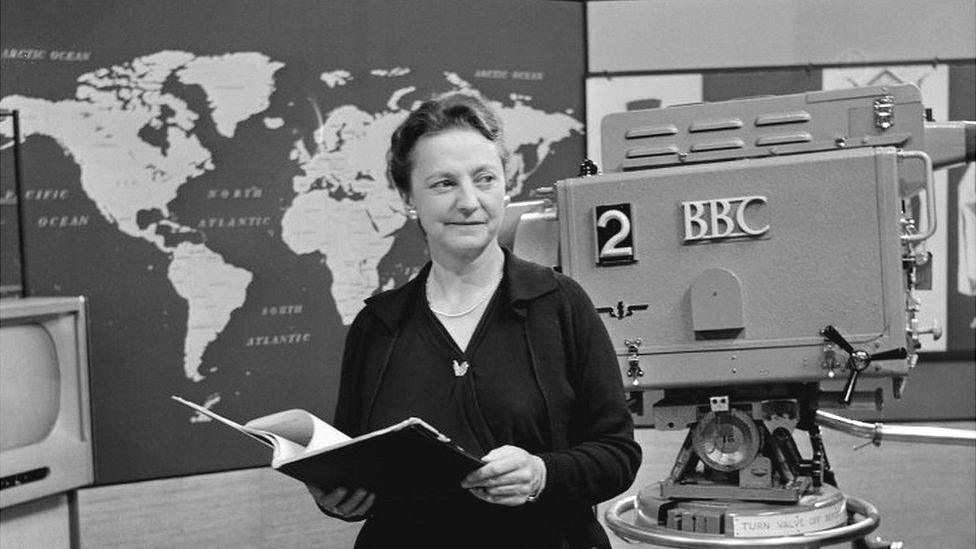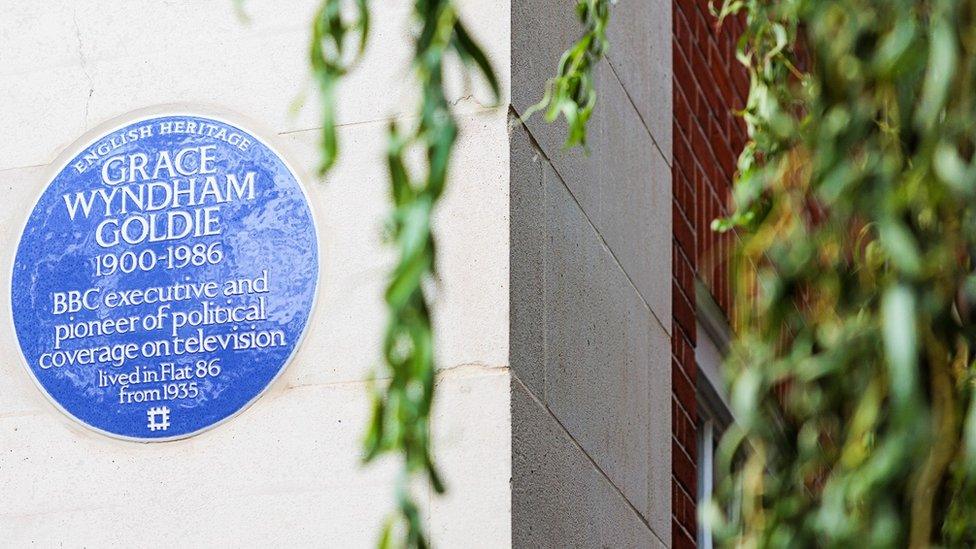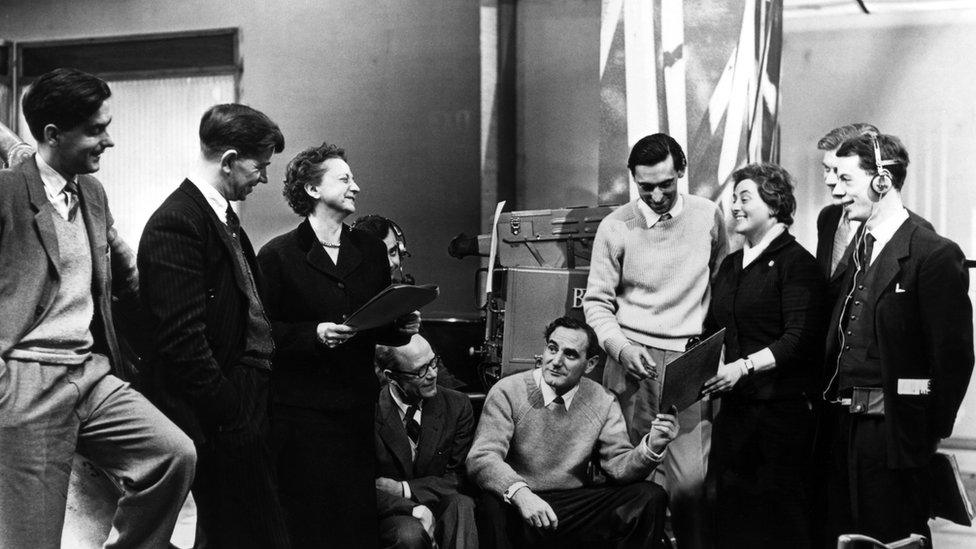Blue plaque for BBC TV pioneer Grace Wyndham Goldie
- Published

English Heritage says the very first televised election broadcast "was almost entirely Grace Wyndham Goldie's concept"
A BBC executive who brought politics and current affairs to TV screens has been recognised with a blue plaque.
Grace Wyndham Goldie was one of a small number of female executives in the BBC during the 1950s and 1960s.
The plaque was unveiled at St Mary Abbot's Court in Kensington, where she lived for more than 50 years.
The CEO of BBC News, Deborah Turness, called Ms Goldie a "true pioneer" who had seen the potential of television when it was still considered radical.

Ms Goldie continued to advise the BBC after her retirement in 1965
Over the course of a 30-year career, she witnessed the first trial television broadcast at Alexandra Palace in 1936, was responsible for early televised election coverage, and oversaw programmes such as Panorama, which first aired in 1953.
Ms Goldie started working for the corporation in 1935 as a radio drama and entertainment critic for their weekly magazine The Listener, and remained involved after her retirement in 1965, making recommendations on BBC archiving policy.

Ms Goldie's plaque is among just 14% commemorating women, out of more than 980
Ms Turness said Ms Goldie "was a true pioneer - not only as a woman in a male-dominated industry, but as someone who quickly recognised the potential of a radical new technology: television".
"All of us involved in making news on TV and all other platforms are following in Grace's footsteps. It's very fitting this plaque will mark her role in television history, as the BBC celebrates its centenary year," she said.
More plaques for women
Ms Goldie's blue plaque is among just 14% of those commemorating women, out of more than 980.
The scheme relies on public nominations, and English Heritage is encouraging people to put forward more female figures for consideration.
Anna Eavis, English Heritage curatorial director and secretary of the Blue Plaques Panel, said: "The very first televised election broadcast was almost entirely Grace Wyndham Goldie's concept and, while the 'swing-ometer' and giant maps have advanced with technology, the format itself has not changed.
"Though her name is perhaps not as widely known as it should be, her legacy is in every current affairs programme and I hope that this well-deserved plaque might inspire passers-by to learn more about her."
Related topics
- Published3 October 2022
